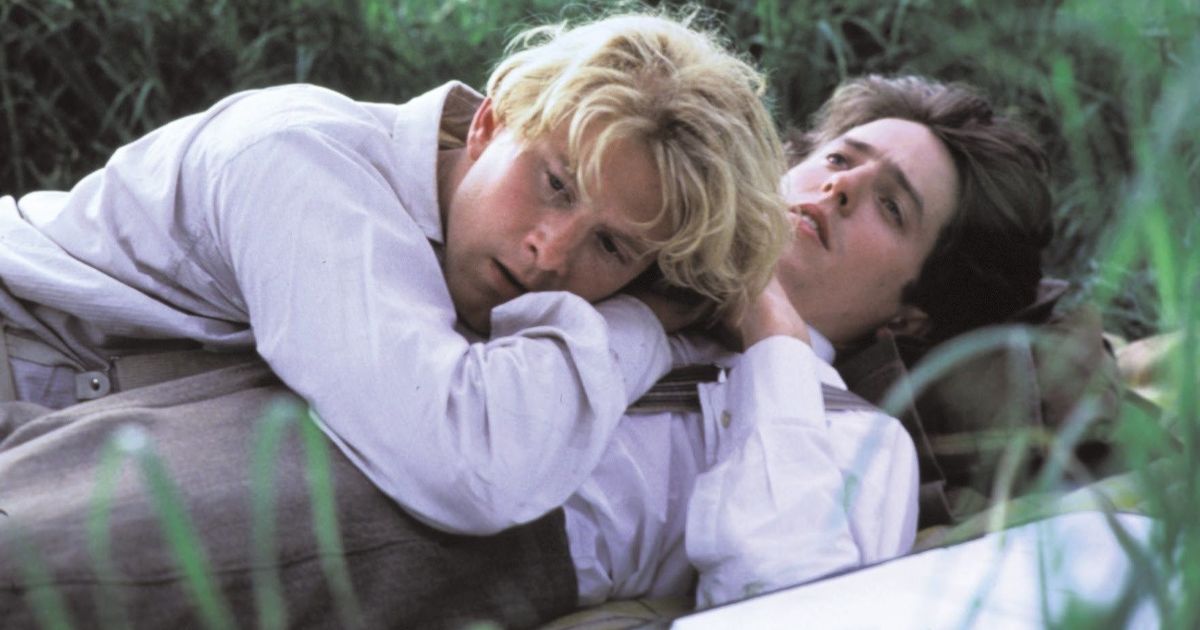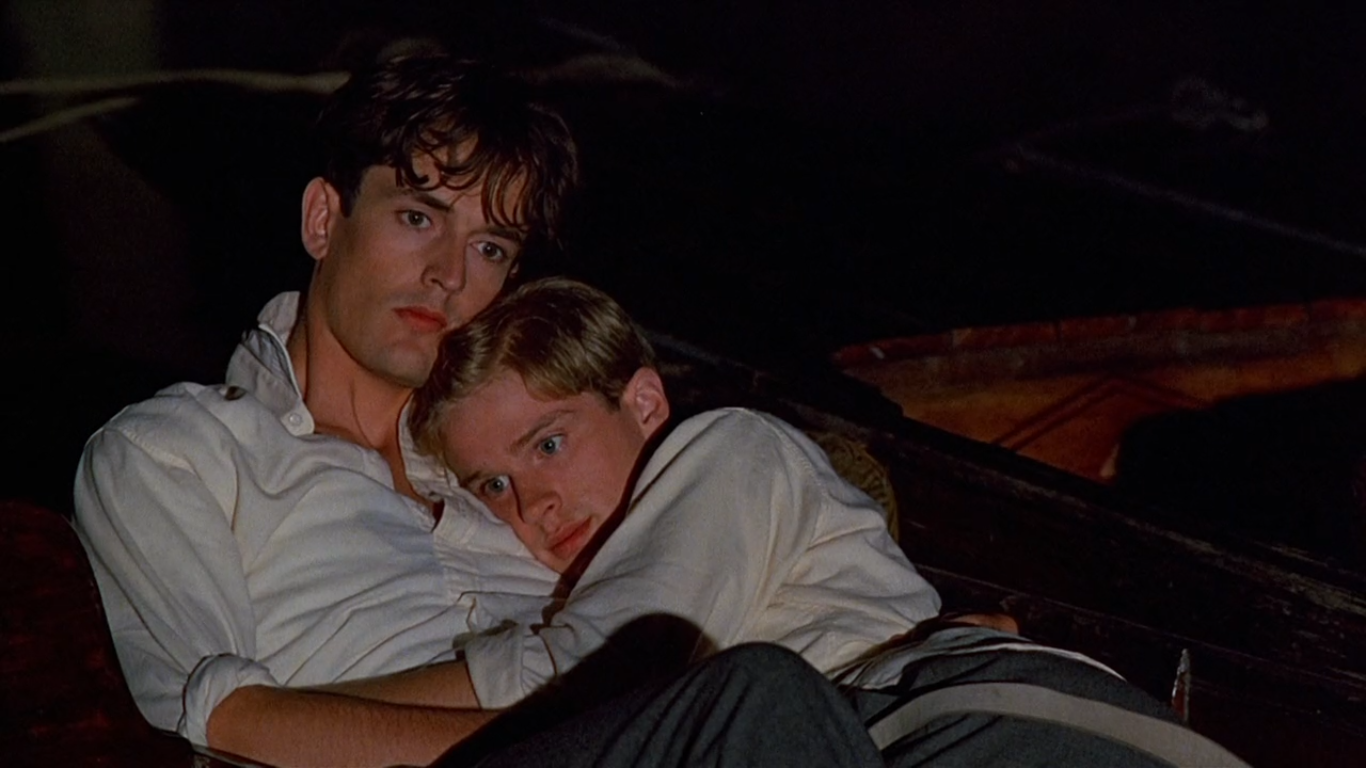Maurice (1987)

Maurice (1987) – A Timeless LGBTQ+ Romance
Introduction
Released in 1987 and directed by James Ivory, Maurice is a landmark British romantic drama based on the novel by E.M. Forster. The film is a poignant exploration of love, identity, and societal expectations set against the backdrop of early 20th-century England. With a compelling cast led by James Wilby, Hugh Grant, and Rupert Graves, Maurice remains a deeply moving and visually stunning portrayal of forbidden love and self-acceptance.
Plot Summary
Set in Edwardian England, the story follows Maurice Hall (James Wilby), a privileged young man who navigates the complexities of his sexuality in a society that condemns same-sex love. As a student at Cambridge, Maurice forms a close bond with Clive Durham (Hugh Grant), a fellow student from an aristocratic background. Their deep intellectual and emotional connection evolves into a romantic relationship, but fearing the legal and social repercussions of being openly gay, Clive ultimately chooses to marry a woman and abandon his feelings for Maurice.
Heartbroken but resilient, Maurice struggles with his identity and attempts to conform to societal norms. However, his life takes an unexpected turn when he meets Alec Scudder (Rupert Graves), a rugged and free-spirited gamekeeper. Unlike Clive, Alec is unafraid of his desires and challenges Maurice to embrace his true self. Their passionate and transformative romance defies class divisions and offers a glimmer of hope in an otherwise oppressive era.
Characters and Cast
Maurice Hall (James Wilby)
Maurice is a deeply introspective and conflicted protagonist, torn between societal expectations and his true nature. James Wilby delivers a nuanced performance, capturing Maurice’s journey from repression to self-acceptance with remarkable depth and sensitivity.
Clive Durham (Hugh Grant)
Clive represents the struggle between duty and desire. His decision to suppress his feelings and conform to societal norms highlights the tragic reality faced by many LGBTQ+ individuals during this time. Hugh Grant’s portrayal is both charming and heartbreaking.
Alec Scudder (Rupert Graves)
As the passionate and courageous gamekeeper, Alec offers Maurice a chance at true happiness. Rupert Graves infuses Alec with raw intensity and vulnerability, making his character a vital contrast to Clive’s reserved nature.
Dr. Lasker-Jones (Ben Kingsley)
A forward-thinking hypnotist who attempts to “cure” Maurice of his desires, Dr. Lasker-Jones serves as a reflection of the limited understanding of homosexuality in Edwardian society.
Themes and Social Commentary
Love and Self-Acceptance
At its core, Maurice is a story of personal discovery and the courage to love despite societal constraints. Maurice’s evolution from denial to acceptance is both painful and inspiring.
Class and Social Expectations
The film explores the rigid class divisions of Edwardian England. Clive and Maurice’s initial relationship is shaped by privilege and expectation, whereas Alec’s working-class background presents a stark contrast, challenging the social order.
The Legal and Cultural Suppression of Homosexuality
Set in an era when homosexuality was criminalized in Britain, Maurice sheds light on the fear, secrecy, and dangers associated with being openly gay during this period. It serves as both a historical critique and a celebration of those who defied convention.
Cinematography and Production
Ivory’s direction brings E.M. Forster’s novel to life with breathtaking cinematography, capturing the idyllic beauty of Cambridge, grand country estates, and the stark contrast between privilege and servitude. The use of natural lighting and period-accurate set designs immerses viewers in the early 20th century, enhancing the film’s authenticity.
The lush orchestral score by Richard Robbins adds to the film’s emotional depth, perfectly complementing the sweeping romance and dramatic tension.
Critical Reception and Legacy
Upon its release, Maurice received critical acclaim for its groundbreaking portrayal of same-sex love. It won the Silver Lion at the Venice Film Festival and remains one of the most revered LGBTQ+ films in cinematic history.
Unlike many tragic LGBTQ+ films of its time, Maurice offers a hopeful ending, setting it apart as a rare and uplifting romance within the genre. Its impact has endured, influencing subsequent LGBTQ+ storytelling in literature and cinema.
Conclusion
Maurice (1987) is a beautifully crafted, emotionally resonant film that continues to captivate audiences with its timeless themes of love, courage, and defiance against societal norms. With stellar performances, stunning visuals, and a groundbreaking narrative, it stands as a cinematic masterpiece and an essential watch for anyone who appreciates powerful storytelling and historical LGBTQ+ representation.